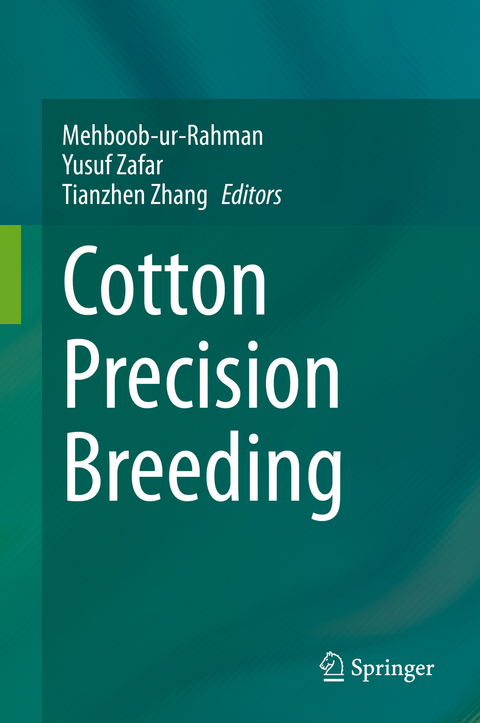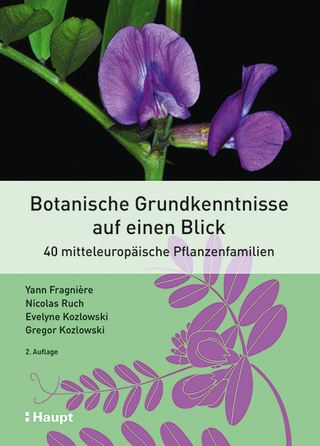
Cotton Precision Breeding
Springer International Publishing (Verlag)
978-3-030-64503-8 (ISBN)
Genomic assays discovered over the last two decades have made it possible to understand the "language" of the genome by associating the genes with specific traits. Together with the more recently established gene-editing tools like CRISPR-Cas9, the cotton genome can be tailored much more precisely than ever before. In this regard, genetic information has been harnessed, through (i) sequencing of the progenitor and cultivated cotton species, (ii) ongoing mega pan-genome sequencing projects, (iii) genetic and physical mapping, and (iv) introgression of genes from alien sources, that resulted in the development of resilient cotton cultivars. These technologies have been deployed or are attempting to overcome the challenges of water shortage, excessive heat in most cotton growing regions, infectious diseases and infestation of insect pests, as well as rising production cost, for sustainable cotton production beyond 2030.
In this book, new knowledge generated by the cotton research community and its application for developing resilient cotton are comprehensively summarized. This book contributed by well-known cotton researchers is a timely collection of the challenges and successes of precision cotton breeding in a changing environment.
Dr Mehboob-ur-Rahman, Deputy Chief Scientist & Professor, National Institute for Biotechnology & Genetic Engineering (NIBGE), Faisalabad, Pakistan
Dr Yusuf Zafar, former Chairman Pakistan Agriculture Research Council, Islamabad Pakistan
Dr Tianzhen Zhang, Distinguished Professor, College of Agriculture and Biotechnology, Zhejiang University, Hanzhou, China
1. Historical perspective of cotton improvement.- 2. Challenges to sustainable cotton production worldwide.- 3.New DNA markers assays.- 4. DNA markers for resistance to diseases.- 5.DNA markers for tolerance to abiotic stresses.- 6.DNA markers for cotton fiber traits.- 7. Evolutionary dynamics of Cotton Genome.- 8. Sequencing Gossypium genomes: Opportunities & Challenges.- 9. Chloroplast genome.- 10 Functional genomic studies in cotton.- 11.Comparative genomics studies of cotton.- 12. First generation transgenic cotton crops.- 13. Prospects of 2nd and 3rd generation transgenic crops.- 14. GM cotton for stress environments.- 15. GM technology and Fiber traits.- 16. Critical evaluation of GM cotton.- 17. Role of private sector in cotton sustainability.- 18. CRISPR-based genome editing tools for improving resistance to insect pests and diseases in cotton.- 19. Using CRISPR-based genome editing tools for improving tolerance to abiotic stresses in cotton.- 20. Application of CRISPR-based genome editing tools for improving fiber traits in cotton.- 21. Cotton crop beyond 2030.
| Erscheinungsdatum | 10.06.2021 |
|---|---|
| Zusatzinfo | XII, 459 p. 43 illus., 37 illus. in color. |
| Verlagsort | Cham |
| Sprache | englisch |
| Maße | 155 x 235 mm |
| Gewicht | 865 g |
| Themenwelt | Naturwissenschaften ► Biologie ► Botanik |
| Schlagworte | CRISPR • Disease tolerand • Drought • Genome editing • Salinity |
| ISBN-10 | 3-030-64503-7 / 3030645037 |
| ISBN-13 | 978-3-030-64503-8 / 9783030645038 |
| Zustand | Neuware |
| Informationen gemäß Produktsicherheitsverordnung (GPSR) | |
| Haben Sie eine Frage zum Produkt? |
aus dem Bereich


